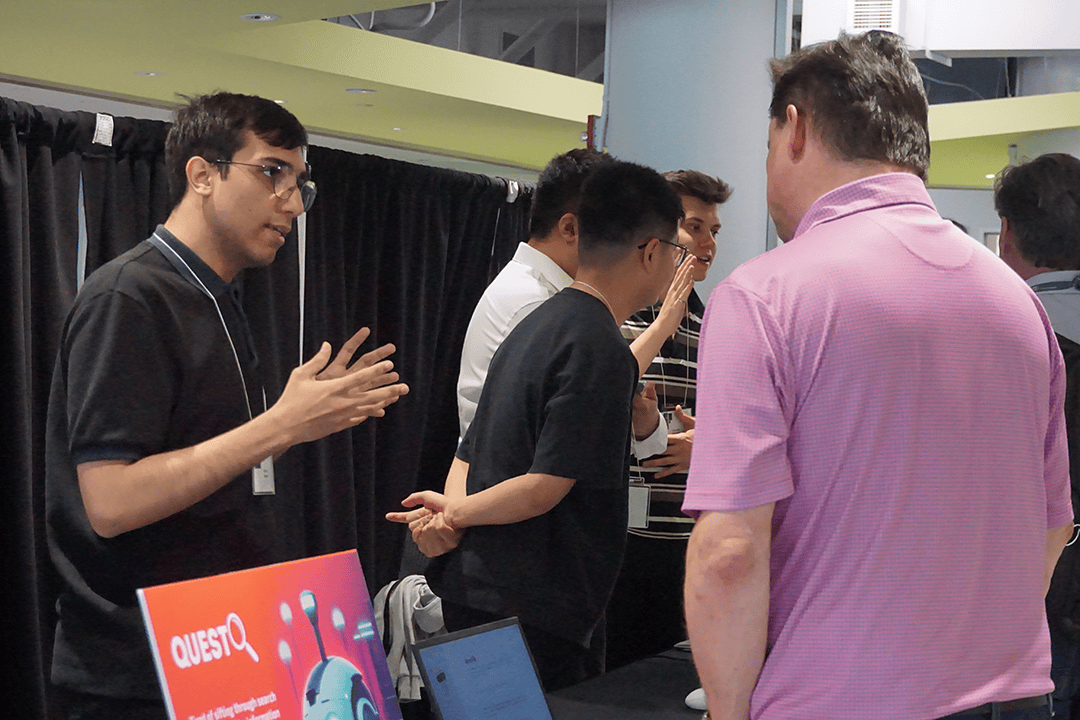Student project uses artificial technology to simplify search results

Artificial intelligence and software development student Rafael Moraes hopes to simplify the way people search for information on the internet.
His new project, QuestChat, was revealed at the Re/Action Applied Research Showcase in the DARE District at C-building on Friday morning. He developed the program as a way to simplify the process of search queries in order to push the most relevant information to the user. The project was inspired by and builds upon the functions of Bing’s AI chatbot and ChatGPT.
Learned about this fascinating project at the @AlgonquinColleg Re/Action showcase.
Developed from AISD student Rafael Moraes, Quest Chat uses the power of AI to find the best matches to your search results.
Thanks to Rafael for the tutorial!#algonquintimes pic.twitter.com/xkK56eAyyA— TJ Sider (@TJSider) April 15, 2023
Moraes explains how QuestChat works in more detail.
“This project is essentially an automated version of prompt engineering,” Moraes said. “So when you take ChatGPT and you want it to answer a question for you, usually you have to paste all of the information you want it to know and then at the end ask the question. (QuestChat) will look in the internet, try to find the information that answers your question, feed that into something like ChatGPT and then that will provide the answer for you.”
Moraes says the project is open source, meaning that anyone can input their own data into the program for a variety of uses.
“If you compare it with the Bing engine, which does something very similar, they are closed source,” Moraes said. “You can’t actually modify it yourself.”
Moraes envisions QuestChat as a tool in the private sector. He says the open source development of QuestChat will allow companies to input their own proprietary data for employees to ask questions about the company.
“You can use that data instead of using ChatGPT which can leak that data for some reason,” Moraes said. “You can change the system so it behaves the way you want it to behave instead of having this preset behaviour.”
Moraes started working on the project in his free time. He wanted to see how a program would use internet data to answer questions. His development of the program was inspired by difficulties he encountered in the past on search engines trying to find the information he needed.
“The first version took about two weeks,” Moraes said. “It was very barebones kind of thing. As people started using it, I started iterating and it took basically three to four months to become what it is now, which is a more modular kind of approach to this automated prompt engineering.”







